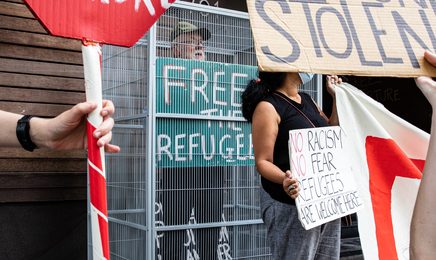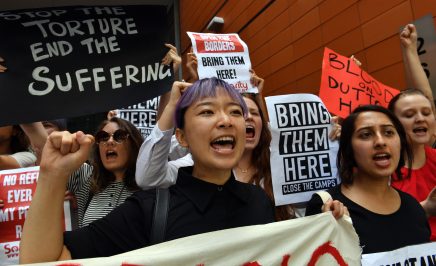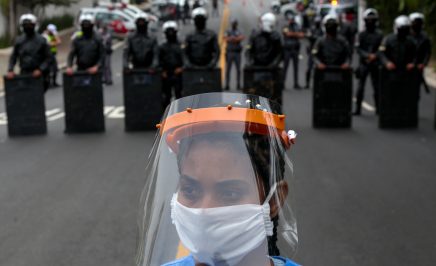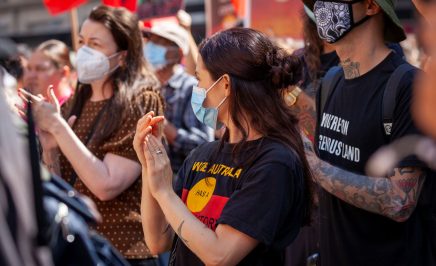The Amnesty International Report 2020/21 documents the human rights situation in 154 countries and presents recommendations for governments and others. It is essential reading for policy makers, advocates, activists and anyone with an interest in human rights.
In the world
From a human rights perspective, 2021 was largely a story of betrayal and hypocrisy in the corridors of power. Promises to “build back better” after the Covid-19 pandemic were little more than lip service, with some governments even redoubling their exploitation of the pandemic to bolster their own positions.
Hopes of global cooperation withered in the face of vaccine hoarding, reluctance to confront climate change and narrow self-interest. Promises of economic recovery were undercut by lacklustre debt relief and entrenched income inequality. Advances in science and technology were undermined by corporate greed and governments’ complicity or exploited to stifle dissent and keep refugees and migrants from crossing borders.
But hopes for a better post-pandemic world were kept alive by courageous individuals, social movements and civil society organisations. Their efforts and limited hard-won victories should prompt governments to live up to their promises.
The report explores three key trends arising from Amnesty International’s 2021 human rights research in 154 countries: health and inequalities, civic space and Global North pushback on refugees and migrants.
At home
The Amnesty International Report 2020/21 highlights there is still a long way to go in ensuring that the human rights of all individuals are protected and supported in Australia.
- Australia continued to incarcerate children as young as 10 years old, but efforts to raise the age of criminal responsibility to 14 progressed. Despite widespread public support, the Australian government displayed reluctance to move on an important reform which would have a significant impact on the health and wellbeing of First Nations children. Whilst there was some progress in the nation’s capital with the ACT Government committing to increase the age to 14, no other states are yet to follow suit.
- Australia’s brutal treatment of refugees and asylum seekers continued. The number of refugees accepted for resettlement in Australia decreased from 18,750 in 2020 to 13,750 in 2021. Although the government announced an end to offshore processing in Papua New Guinea by the end of the year, the indefinite and arbitrary detention of refugees and asylum seekers continued.
- Australia failed to tackle climate crisis. The government continued to fund coal and gas development projects, often in violation of First Nations people’s rights. Further, Australia failed to adopt carbon emission reduction targets consistent with its obligations under the Paris Agreement and human rights law.
- Australia failed to to defend LGBTQIA+ rights. Government announced plans to introduce a revised Bill on Religious Freedom to further entrench discrimination against LGBTQIA+ people.
- Australia’s response to sexual and gender-based violence against women remained inadequate. Recommendations for legislative reforms made by the Australian Human Rights Commission in 2020 following its inquiry into sexual harassment in the workplace had still not been fully implemented by the end of the year.
- No one was held accountable for alleged war crimes committed by Australian troops in Afghanistan.
“There are still too many people who are unable to access their basic human rights in Australia. The continued failure of members of society including refugees, asylum seekers and First Nations People to access their rights, demonstrates the urgent need for the government to implement an overarching single Human Rights Act that defends and protects the rights of all people.”
Sam Klintworth, Amnesty International Australia Director
On a domestic level, Amnesty International Australia’s 2025 Vision looks ahead with a clear vision for the next five years, of hope and renewed commitment to continuing to challenge injustice and create real, lasting change on key issues: anti-racism, LGBTQIA+ rights, Indigenous justice, climate justice, refugee rights and women’s rights.
On a global level, the latest Amnesty International Annual Report 2021/22 details the concerns and calls for actions to governments and others.





